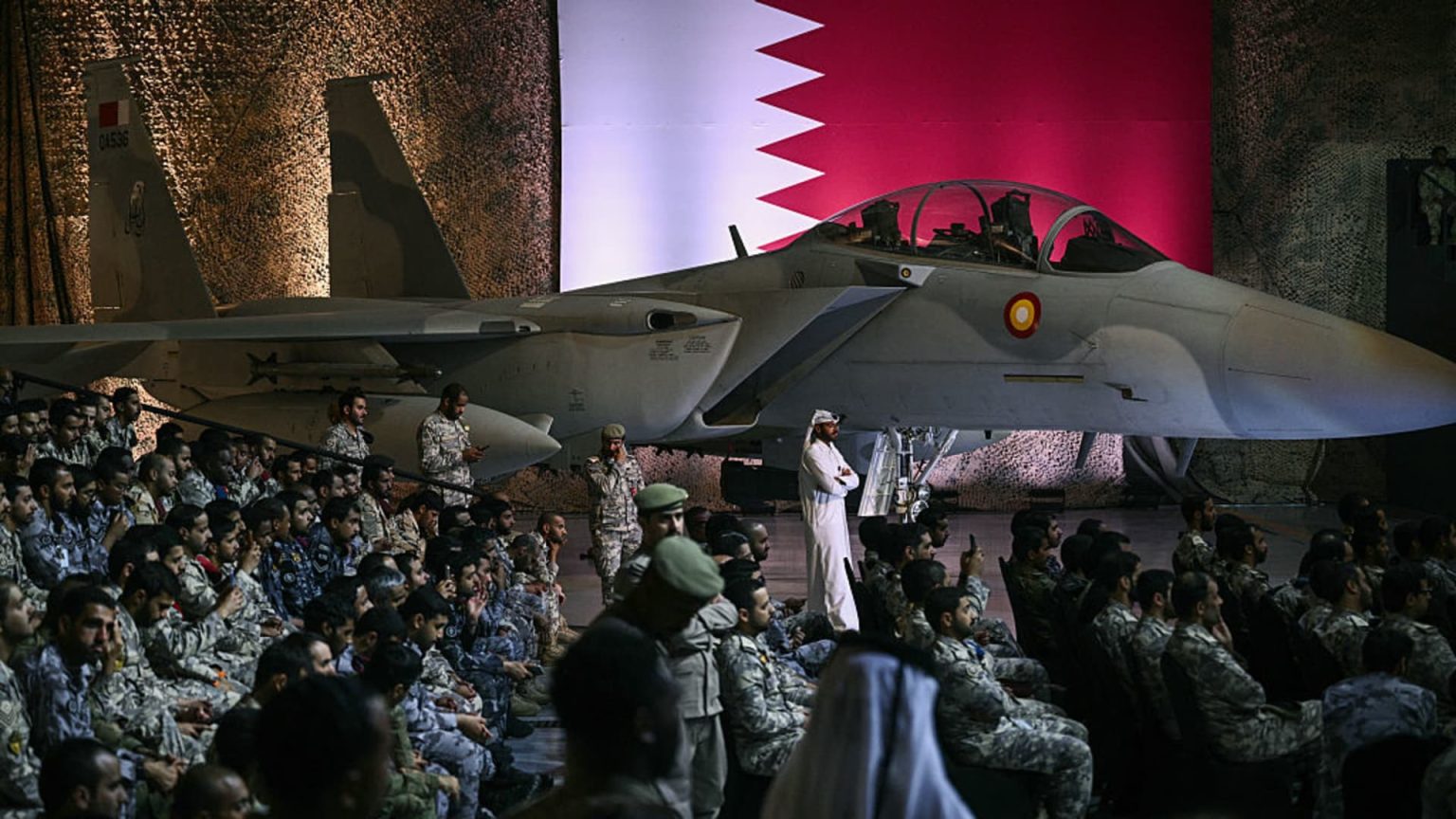In a significant escalation of tensions in the Middle East, Iran on Monday carried out a missile strike targeting the Al-Udeid military base used by U.S. forces in Qatar. The attack comes in direct retaliation for recent U.S. airstrikes on Iran’s nuclear facilities. Thankfully, Qatari air defenses successfully intercepted the incoming missiles, preventing casualties. As military and diplomatic officials assess the situation, reactions are being closely monitored across the region and beyond.
| Article Subheadings |
|---|
| 1) Details of the Missile Strike |
| 2) Qatari Response and Defense Measures |
| 3) Broader Implications of the Attack |
| 4) Reactions from U.S. Officials and Leadership |
| 5) Market Reactions and Economic Impact |
Details of the Missile Strike
On Monday, the Iranian armed forces launched a missile attack aimed at the Al-Udeid Air Base, which is strategically important to U.S. military operations in the region. Explosions were reported in the airspace over Doha, the capital city of Qatar. The military base, being one of the largest U.S. air facilities in the world, houses both American troops and strategic military assets, making it a prime target amid rising tensions between Iran and the United States. After the launch, the Qatari Defense Ministry confirmed that its defense systems effectively intercepted the missile, averting what could have been catastrophic consequences.
Qatari Response and Defense Measures
In light of the missile attack, Qatar’s air defense systems activated efficiently to neutralize the threat. Following the interception, the Qatari Foreign Ministry issued a strong condemnation of Iranian actions, describing them as a violation of Qatar’s sovereignty and international law. The statement also reserved Qatar’s right to take proportional actions if necessary, signaling a careful yet determined stance as the situation unfolds. “We consider this an attack by the Iranian Revolutionary Guard Corps,” a spokesman said, highlighting Qatar’s commitment to protecting its airspace.
Broader Implications of the Attack
The missile strike has significant implications for regional security and U.S.-Iran relations. Following the attack, U.S. military officials expressed heightened concerns over potential backlash against American installations throughout the Gulf region, particularly in Iraq and Bahrain. The strikes signify a new chapter of aggressive posturing between the two nations, potentially setting the stage for further military confrontations. The international community watches closely as both sides could quickly escalate this conflict, pressing for diplomatic solutions.
Reactions from U.S. Officials and Leadership
U.S. President and top military officials monitored the developments from the White House’s Situation Room. This response indicates the seriousness of the situation and the necessity for strategic decision-making in a volatile environment. Officials assert that they are prepared for a range of responses depending on Iran’s subsequent actions. The incident has prompted discussions on further military readiness and intelligence assessments about Iranian capabilities.
Market Reactions and Economic Impact
The missile strike had immediate repercussions in global markets, particularly in the crude oil sector. Following the attack, crude oil prices plummeted, reflecting traders’ concerns over stability in the Middle East. Analysts point to the complex relationship between geopolitical tensions and market dynamics, underscoring the fragile nature of energy markets heavily influenced by regional conflicts. Investors and energy suppliers are reassessing their strategies in light of this evolving situation.
| No. | Key Points |
|---|---|
| 1 | Iran launched a missile strike against the Al-Udeid military base in Qatar. |
| 2 | Qatar’s air defense intercepted the missiles, preventing casualties. |
| 3 | The attack was in retaliation for U.S. airstrikes on Iranian nuclear facilities. |
| 4 | U.S. officials are on heightened alert for potential further Iranian attacks. |
| 5 | Crude oil prices fell in response to the escalating situation. |
Summary
The Iranian missile strike against the U.S. Al-Udeid Air Base marks a significant escalation in hostilities between Iran and the United States. Although Qatar’s air defenses successfully intercepted the missiles, the situation reflects deeper tensions influencing U.S. foreign policy and regional security. The world is watching as diplomatic channels attempt to manage the fallout from this latest confrontation. Future actions from both nations will likely shape the geopolitical landscape in the Middle East for years to come.
Frequently Asked Questions
Question: What triggered the Iranian missile strike?
The missile strike was a direct retaliation against U.S. military actions, specifically airstrikes on Iran’s nuclear development facilities.
Question: What was the outcome of the attack on Al-Udeid Air Base?
Qatar’s air defense systems successfully intercepted the missiles, and there were no reported casualties or injuries.
Question: How are the global markets reacting to this event?
Following the news of the missile strike, crude oil prices dropped, reflecting concerns over instability in the Middle East.


